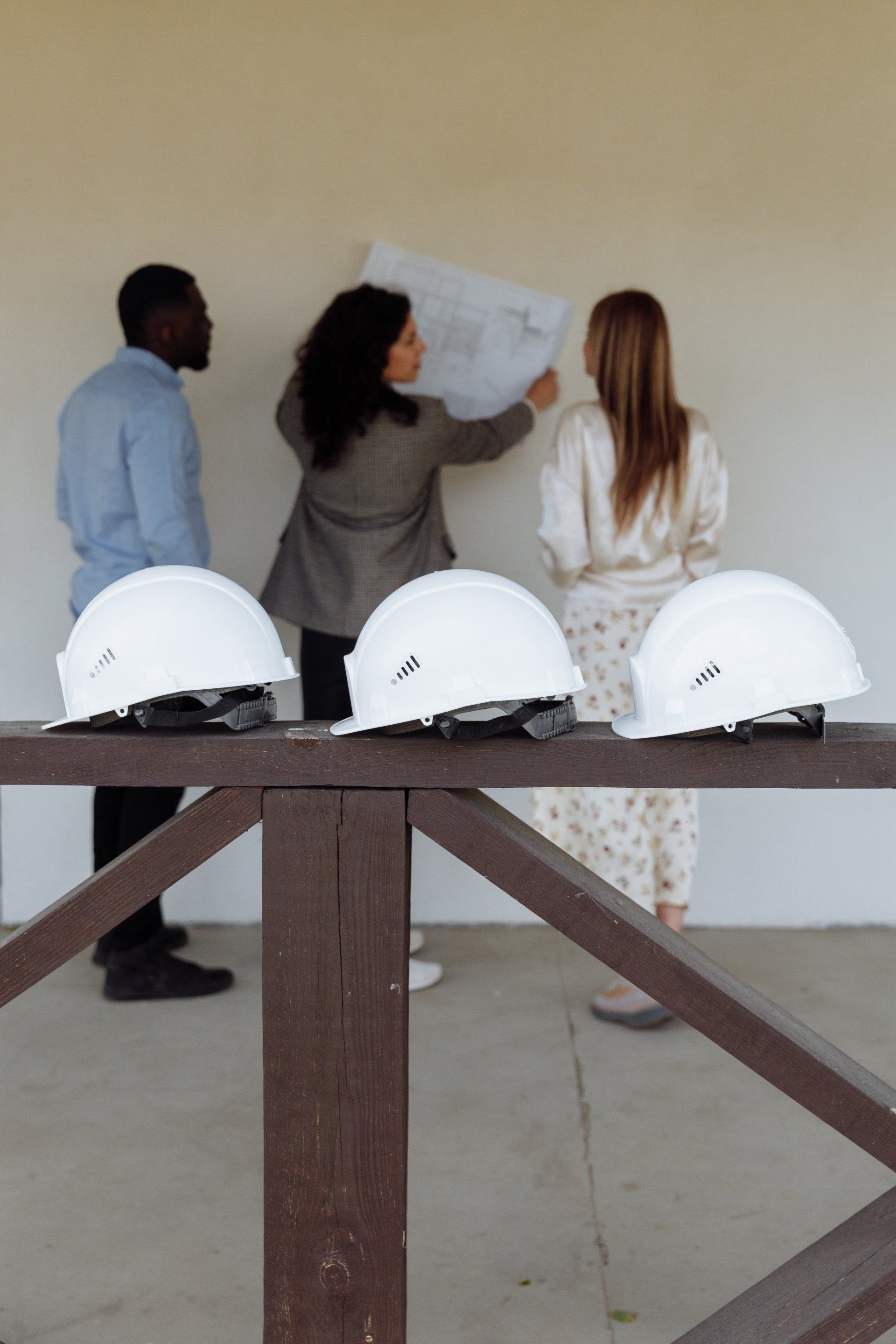Protecting Idaho's Roofing Industry: Workers' Comp Insurance For Roofers
The roofing industry in Idaho plays a significant role in the state's economy, providing employment opportunities and contributing to the overall growth of the construction sector.
However, this industry also presents various risks and hazards for workers, making it crucial to prioritize their safety and well-being. One essential aspect of protecting Idaho's roofing industry is ensuring that workers have adequate insurance coverage, such as workers' compensation insurance. Feel free to message our team at
Idaho Select Insurance for your inquiries.
Contact Us
We will get back to you as soon as possible.
Please try again later.
Workers' compensation insurance serves as a financial safety net for employees in case they suffer injuries or illnesses while performing their job duties. In the context of the roofing industry, where workers are exposed to potential falls from heights, extreme weather conditions, and physical strain from manual labor, having workers' compensation insurance is crucial.
It provides medical benefits for necessary treatments and rehabilitation services, wage replacement during recovery periods, and even vocational training if an injury results in a permanent disability that prevents them from returning to their previous occupation. By requiring roofers to have this type of insurance coverage, Idaho can ensure that its roofing workforce receives appropriate support if accidents occur on the job site.
Key Takeaways
- Workers' compensation insurance is crucial for protecting the roofing industry in Idaho.
- Workers' comp insurance provides financial support for injuries or illnesses on the job, including medical benefits, wage replacement, and vocational training.
- Idaho requires roofers to have workers' compensation insurance for support in case of accidents, ensuring their financial security during recovery.
- Risk mitigation strategies, such as regular training programs and adherence to safety protocols, are essential in the roofing industry to enhance safety measures.
The Importance of Workers' Compensation Insurance
Workers' compensation insurance is crucial for the protection of roofers, as it provides a safety net in the event of work-related injuries or accidents, ensuring their financial security and allowing them to focus on their recovery without worrying about potential financial burdens. Roofing is a physically demanding profession that involves working at heights and handling heavy equipment. The risks associated with roofing work are numerous, including falls from ladders or roofs, exposure to hazardous materials, and accidents involving power tools. In such a high-risk environment, workers' compensation insurance plays a vital role in providing benefits to injured roofers.
One of the key benefits offered by workers' compensation insurance is medical coverage. In the event of an injury on the job, this insurance covers the cost of medical treatments required for recovery. It includes doctor visits, hospital stays, surgeries, medications, and rehabilitation services. This ensures that roofers can receive timely and adequate medical attention without having to worry about paying exorbitant medical bills out of pocket.
Furthermore, workers' compensation insurance helps protect roofer's income during their recovery period. When an injury prevents them from working temporarily or permanently, they may be entitled to receive wage replacement benefits through this insurance. These benefits typically cover a portion of their lost wages while they are unable to work due to an injury sustained on the job.
In addition to benefiting individual roofers directly, workers' compensation insurance also fulfills legal requirements in many jurisdictions. Employers are often legally obligated to carry this type of insurance for their employees engaged in high-risk occupations like roofing. By complying with these regulations and providing sufficient coverage for their employees, employers contribute towards safeguarding not only the well-being but also the financial security of roofers.
Workers' compensation insurance provides essential benefits for roofers by ensuring their financial security and facilitating their recovery process after work-related injuries or accidents. It covers medical expenses incurred during treatment as well as compensation for lost wages during the recovery period. Moreover, it fulfills legal requirements in many jurisdictions, demonstrating its significance in protecting the roofing industry and the workers within it.
Mitigating Risks in the Roofing Industry
To minimize potential hazards and enhance safety measures within the roofing sector, it is essential to implement comprehensive risk mitigation strategies. The roofing industry carries inherent risks that pose serious threats to worker safety. Roofers are exposed to various hazards such as falls from heights, electrical shocks, heat exhaustion, and injuries caused by falling objects or tools. These risks can result in severe injuries or even fatalities if proper precautions are not taken. Therefore, it is crucial for employers and workers in the roofing industry to prioritize safety by implementing effective risk management practices.
One way to mitigate risks in the roofing industry is through regular training programs that focus on educating workers about potential hazards and providing them with the necessary skills to work safely. Training sessions should cover topics like fall protection techniques, proper use of equipment and tools, fire prevention measures, and emergency response procedures. Additionally, employers should enforce strict adherence to safety protocols and regulations on job sites. This includes conducting regular inspections of equipment and ensuring that all workers have access to appropriate personal protective equipment (PPE) such as hard hats, safety glasses, gloves, and harnesses.
By creating a culture of safety awareness and providing ongoing training opportunities for employees, employers can significantly reduce the occurrence of accidents and injuries in the roofing industry. To convey a deeper meaning for the audience regarding risk mitigation strategies in the roofing industry, a table can be used to highlight key areas of concern along with corresponding preventive measures. Please find below an example of such a table:
| Roofing Hazard | Preventive Measures |
|---|---|
| Falls from Heights | Implement fall protection systems such as guardrails or harnesses; provide proper training on safe ladder usage |
| Electrical Shocks | Ensure compliance with electrical codes; train workers on electrical hazard identification and safe practices |
| Heat Exhaustion | Provide shaded rest areas; encourage frequent hydration breaks; educate workers on recognizing signs of heat-related illnesses |
| Falling Objects | Secure tools and materials with lanyards or nets; enforce the use of hard hats on job sites |
| Tool Injuries | Train workers on proper tool handling and storage; provide appropriate protective gear |
By utilizing such a table, employers and workers can easily identify key risks in the roofing industry and implement preventive measures to mitigate them. Ultimately, prioritizing worker safety through comprehensive risk mitigation strategies will not only protect individuals but also contribute to a more productive and efficient roofing industry.
Financial Protection for Roofing Workers
Financial stability is a crucial pillar in safeguarding the livelihoods of those working in the roofing industry, acting as an unwavering shield against unexpected financial storms. Roofing workers face various risks and hazards on a daily basis, making it imperative for them to have adequate financial protection.
One way this is achieved is through obtaining workers' compensation insurance, which not only provides coverage for medical expenses but also ensures income replacement during periods of disability.
In Idaho, like in many other states, workers' compensation insurance is a legal requirement for employers with employees engaged in roofing work. This insurance serves as a safety net for both the workers and their employers by providing financial support when accidents or injuries occur. It covers medical costs related to work-related injuries such as falls from roofs or exposure to hazardous materials.
Additionally, workers' compensation also provides wage replacement benefits to injured workers who are unable to perform their duties temporarily or permanently due to these occupational hazards.
Overall, maintaining financial stability through proper insurance coverage is vital for those employed in the roofing industry. Workers' compensation insurance not only helps protect the well-being of individuals but also ensures that legal requirements are met, benefiting both employees and employers alike.
By understanding the importance of financial protection and adhering to legal obligations, the roofing industry can strive towards creating a safer and more secure working environment for its workforce.
Promoting Safety and Responsibility in Idaho's Roofing Industry
Promoting safety and responsibility in Idaho's roofing sector requires a collective effort from all stakeholders involved. To ensure the well-being of workers and minimize accidents, it is crucial to promote training programs that enhance their skills and knowledge about safe roofing practices. These training sessions can cover various aspects, such as proper installation techniques, handling hazardous materials, and identifying potential risks on construction sites. By providing comprehensive training opportunities, the roofing industry can equip its workforce with the necessary tools to prioritize safety.
Encouraging proper equipment usage is another essential aspect of promoting safety in Idaho's roofing industry. Roofers should be provided with high-quality personal protective equipment (PPE) like helmets, gloves, harnesses, and safety glasses. This ensures that they are adequately protected while working at heights or handling potentially harmful materials. Additionally, employers must emphasize the importance of using appropriate equipment for specific tasks, such as ladders or scaffolding systems designed for roofing work. Regular inspections and maintenance of equipment should also be enforced to prevent any malfunctions that could compromise worker safety.
- Training programs: Implementing regular training sessions to educate roofers about safe practices.
- Personal protective equipment: Providing high-quality PPE to ensure worker protection.
- Equipment usage: Emphasizing the use of appropriate tools and conducting regular inspections for maintenance purposes.
By prioritizing these measures within Idaho's roofing industry, stakeholders can collectively contribute to a safer work environment for roofers while ensuring responsible practices are followed throughout the sector.
Ensuring the Sustainability of the Roofing Industry in Idaho
Ensuring the long-term viability of Idaho's roofing sector requires a commitment to sustainable practices that extend beyond immediate financial considerations. For example, just as a strong and well-maintained roof protects a building from the elements, implementing environmentally friendly roofing materials and techniques can safeguard the industry against future challenges and contribute to a healthier planet.
By adopting sustainability measures, such as using energy-efficient materials that reduce carbon emissions and promote energy conservation, the roofing industry in Idaho can play a significant role in mitigating environmental impact. Moreover, incorporating sustainable practices into workforce development can further enhance the industry's sustainability by equipping workers with the necessary skills and knowledge to implement eco-friendly techniques.
One key aspect of sustainability measures in the roofing industry involves utilizing materials that have a reduced environmental footprint. This could include using recycled or recyclable materials for roof construction or opting for reflective coatings that minimize heat absorption and reduce energy consumption for cooling purposes. Additionally, promoting proper waste management practices during construction projects can minimize landfill contributions and encourage recycling efforts.
By integrating these sustainability measures into standard operating procedures, Idaho's roofing industry not only reduces its ecological impact but also positions itself as an advocate for responsible construction practices. In terms of workforce development, training programs should be implemented to educate roofers on sustainable roofing techniques, installation methods, and maintenance procedures. This would ensure that workers are equipped with up-to-date knowledge on environmentally friendly approaches while also enhancing their skill set to meet evolving industry demands.
Furthermore, fostering collaboration between educational institutions and roofing companies can facilitate research and innovation in sustainable roofing technologies. By investing in workforce development initiatives focused on sustainability, Idaho's roofing sector can establish itself as a leader in eco-conscious construction practices while securing its long-term viability amidst changing societal expectations towards environmental stewardship.
Protect Your Roofers with Worker Compensation Insurance at Idaho Select Insurance
In conclusion, the implementation of workers' compensation insurance in Idaho's roofing industry serves as a safeguard against potential risks and hazards faced by workers. By providing financial protection in the event of accidents or injuries, this insurance policy promotes an atmosphere of safety and responsibility within the industry. Furthermore, it ensures the sustainability and longevity of the roofing sector by mitigating the financial burden on workers and employers alike.
The importance of workers' compensation insurance cannot be overstated when it comes to protecting the well-being of roofers in Idaho. This comprehensive coverage not only addresses immediate medical expenses but also provides ongoing support for rehabilitation and lost wages. By offering such financial security, this policy encourages individuals to pursue careers in roofing without fear of potentially devastating consequences.
Moreover, workers' compensation insurance plays a vital role in promoting safety practices within the industry. The availability of this coverage incentivizes employers to prioritize workplace safety measures and invest in training programs that reduce accidents and injuries. It fosters an environment where both employees and employers are committed to creating a safe working environment for all involved.
In summary, workers' compensation insurance is an indispensable tool for protecting Idaho's roofing industry. It offers much-needed financial protection for roofers while promoting safety measures within workplaces. By ensuring sustainability through its risk mitigation capabilities, this insurance policy contributes to the long-term growth and success of Idaho's roofing sector.
Affordable Insurance With Personal Service - Local Agents & Brokers
CONTACT US
Phone: 208-515-2625
Email Us:
tony@idselectins.com
chris@idselectins.com
Meridian Office
3023 E Copper Point Dr. #203
Meridian, ID 83642
Boise Office: 9727 W Cory Ln Ste. 101
Boise, ID 83704
Insurance Services
Have Questions or Request A Quote
Contact Us
We will get back to you as soon as possible.
Please try again later.






